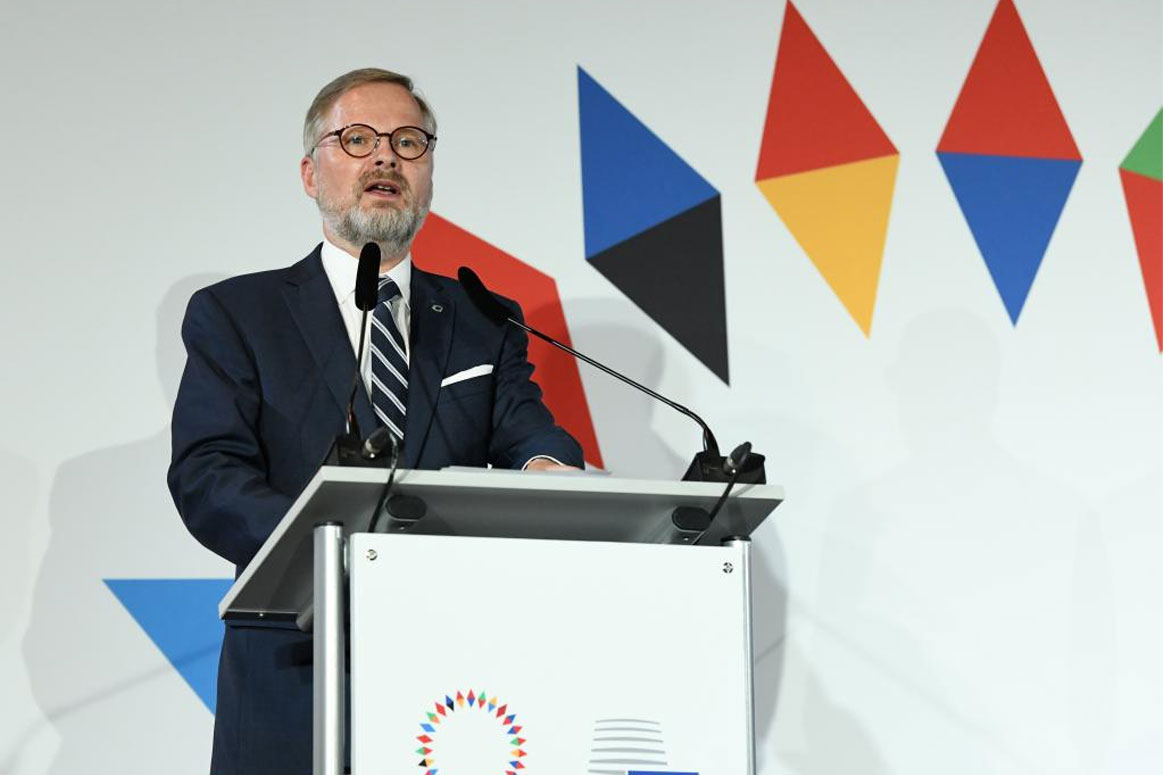Reuters reported that on April 17, Czech Prime Minister Petr Fiala said that the Czech Republic's 60-year dependence on Russian oil has officially ended, after the country put the Transalpine pipeline (TAL) from the west into operation at new capacity.
Speaking at an oil warehouse in the town of Nelahozeves, about 20 km north of the capital Prague, Mr. Fiala said that the first batch of oil at upgraded capacity has arrived at the central warehouse. He stressed that this was the first time in history that the Czech Republic had been completely supplied with oil from non-Russian sources.
According to Reuters, since Russia launched a special military operation in Ukraine in 2022, the Czech government has made efforts to end its partial dependence on the Druzhba pipeline - which has transported oil from Russia for decades and has accounted for about half of the country's annual oil imports.
At the end of last year, the TAL pipeline upgrade process was completed, carried out by the Czech pipeline operator MERO. TAL is an oil pipeline from oil tankers to the port of Trieste (Italy) to Germany, then connecting to the Ingolstadt - Kralupy - litvinov (IKL) pipeline to transfer oil to the Czech Republic.

The TAL upgrade has raised the capacity reserved for the Czech Republic to 8 million tons per year, enough to meet the country's entire annual oil demand. This is also a positive signal for the Czech refinery Orlen Unipetrol, which has been continuously exploiting oil from national reserves to maintain production since March, due to supply disruption from the Druzhba pipeline.
A representative of Orlen Unipetrol said that the company is preparing to completely switch to supply via TAL pipeline. The next batch of oil, originating from Norway, will go through TAL and be transferred to litvinov refinery.
According to the Czech Ministry of Industry, the country imported 6.5 million tons of oil in 2024 from countries such as Azerbaijan and Kazakhstan, along with small amounts from Norway and Guyana. However, Russian oil via the Druzhba pipeline still accounts for 42,2% of total imports, although it has decreased compared to 2 years ago, when this rate reached 58%.
However, MERO said it will maintain oil flow in the Druzhba pipeline for future use, with the ability to receive oil from alternative sources - such as oil from the Ukrainian port of Odesa.
Currently, the Druzhba pipeline is still supplying oil to Hungary and Slovakia - two countries that are pro-Russian and still want to continue importing oil from Russia in the coming time.









